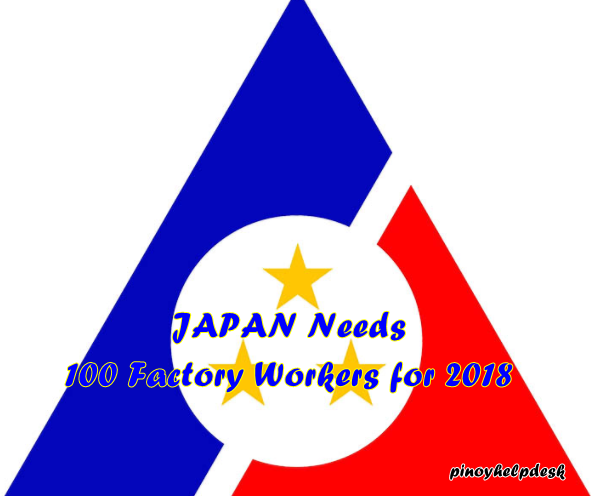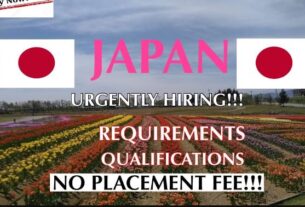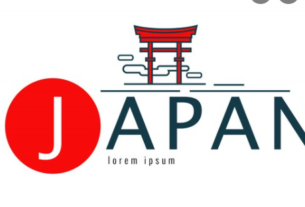Get Hired As a Factory Worker in Japan:

If you’ve ever longed to work in a Japanese factory, you might be wondering how it all works. In this article, we’ll explore the job description of a production associate and how to apply. Both are vital roles that are required for successful production and factory workers. If you’d like to apply, you should be at least 18 years of age, possess a Vocational Diploma or Short Course Certificate, and be physically fit. You should be able to carry up to sixty-five kilograms of weight and be good at interacting with customers.
Factory workers:
If you are interested in working as a factory worker in Japan, there are many opportunities available. The job duties include processing products, operating machines, and monitoring compliance standards. The pay rate is highly dependent on skills, work experience, and visa type. In addition to salary, you can earn as much as 70,000 yen (US$1,438 per month). In addition, you can also work full-time or part-time. A full-time job will usually involve 8 hours of work per day for five or six days.
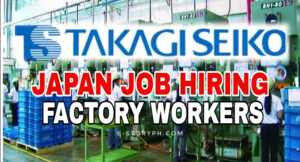
Although the Japanese government has been strict about hiring foreign workers, these individuals still face challenges in the country. Many trainees find themselves in unsuitable working conditions and long for more money. Thousands of trainees quit their host companies each year. However, if you are a new recruit, there are many opportunities for employment in the Japanese manufacturing industry. To get started, read on for some tips on how to work in a Japanese factory.
Production workers:

One of the world’s most sought after jobs is that of the production worker. These workers, called kojo rodo-sha in Japanese, have been in demand since the Industrial Revolution. Japan was a latecomer in the industrial revolution, but it quickly caught on and led Asian countries through the Post-industrial Revolution Era, the Electronics Revolution Period, and the Information Technology Age. Since then, Japan has remained a source of quality consumer goods, and a high percentage of these products are made in Japan. Many of the world’s leading brands are based in Japan, including National Panasonic, Yamaha, Mitsubishi, Honda, and Hitachi.
While the Japanese tradition of lifetime employment dates back to the end of World War II, it is not a universal rule. Currently, less than a third of all workers in Japan are lifetime employees. Many of the top-selling companies, which sell products to foreign markets, dilute the value of lifetime employment with large numbers of temporary workers and subcontractors. This allows for the growth of companies while simultaneously lowering labor costs. And as a bonus, these companies can also attract and retain top talent.
Fabricator:
The term “Fabricator” describes a type of job in a Japanese factory. These workers can earn up to one hundred million yen over the course of their lifetimes, not to mention the bonuses they will receive. That’s comparable to the average wage in the U.S., and the Japanese have been using this term for decades. The phrase “Fabricator” is even used for the owner of Beam, a popular Japanese liquor.

The use of this term has several implications for the global manufacturing industry, but it is also useful in Japan. Asylum seekers are an important source of gray-market labor for Subaru suppliers. Asylum seekers fall into two groups in Japan: those with legitimate work permits, and those on “provisional release” from immigration detention, who are not. This second group is allowed to remain in the country and work while their asylum applications are reviewed, but are not allowed to engage in any other work activities.
Production Associate:
Getting hired as a Production Associate in a Japanese factory means a variety of tasks. This entry-level job will expose you to different tasks, including handling paints, coatings, filling products, and labeling them. It’s crucial to be a highly competent individual who strives to do the best possible job. Listed below are just a few of the many responsibilities of a Production Associate.
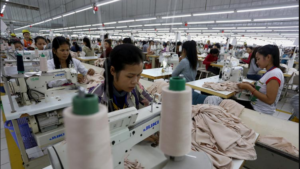
Before you apply, you must have a Short Course Certificate or Vocational Diploma. You should be physically fit, with at least six months’ experience in a factory. The position requires you to be 60kg to 85kg, and you must be able to interact with customers. You must also have knowledge of Japanese culture, and be able to communicate well in English. If you’re eligible to work in a Japanese factory, make sure you apply.
Assembler:
Assembler in Japan factory workers earn nearly twice as much as the national average. On average, an Assembler in Japan will earn nearly $23 per hour, or $49,000 per year. Overtime pay and additional compensation for night work can increase their salary even more. The salary gap may be wider than the national average because of differences in compensation for other industries and other factors. The following table details the salary range for Manufacturing Assembler III in Japan.

The average salary of a Factory Worker in Japan is JPY 2,846,215 per year, or about $1,368 per hour. The salary range is between JPY 2,194,434 and JPY 3,365,378 per year. Assuming you have less than a high school diploma, the average salary for Factory Workers in Japan is approximately JPY 1,368 per hour. The salary range is much wider for senior factory workers, though.
